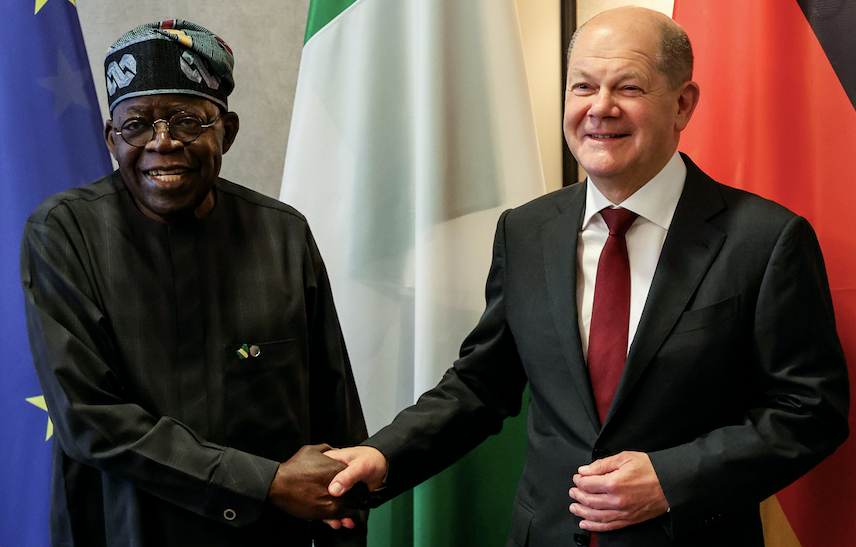
Germany and Nigeria signed two accords on Tuesday, agreeing on a $500m investment in renewable energy and a gas export deal. This is the first-ever gas deal between Africa’s largest oil producer and Europe’s biggest gas consumer, signed at the G20 Compact with Africa conference in Berlin.
Nigeria’s Riverside LNG project, which operates in the Niger Delta, and Germany’s Johannes Schuetze Energy Import signed a memorandum of understanding (MoU) wherein Nigeria will export 850,000 tons of liquefied natural gas (LNG) to Germany, later increasing to 1.2 million tons.
The historic deal represents 2% of Germany’s total LNG imports, with the first delivery from Nigeria expected in 2026.
“This is a further step towards diversifying German gas imports,” said Johannes Schuetze, chairman of the German gas importer.
The deal is said to help process about 50 million cubic feet of natural gas per day, which would otherwise be flared. Nigeria has one of the largest gas reserves in Africa, exceeding 200 trillion cubic feet. Still, it is forced to burn or flare about 300 million cubic feet due to a lack of proper processing facilities.
A second MoU was also signed between the Union Bank of Nigeria and Germany’s DWS Group, where Germany committed a $500m (€459.9m) investment in Nigeria’s renewable energy and technology projects. The projects will be set up mostly in rural communities and aim to bringmore people into the formal economy.
German Chancellor Olaf Scholz said on Monday the country will invest €4bn in Africa until 2030, which will in turn help Germany reach its energy transition goals.
Since Bola Tinubu came to power in Nigeria in May, Africa’s largest economy has announced bold foreign investment deals and reforms on fuel subsidies and currency controls.



